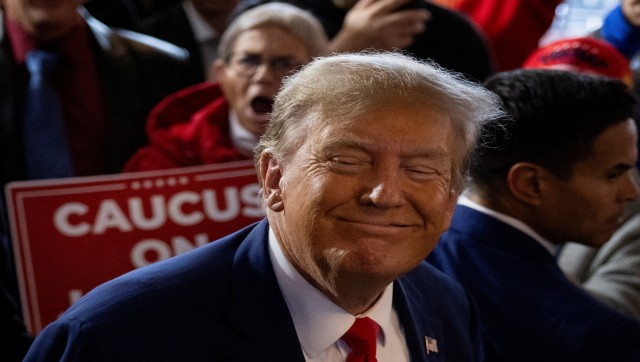Donald Trump won the Iowa caucuses on Monday, a key victory at the start of the Republican primary that strengthens the former president’s ties with his party’s members even as he faces severe legal battles that might hinder his drive for re-election. The size of Trump’s accomplishment is still being determined, but fans of the former president braved a historic and life-threatening cold snap to attend caucus sessions held in schools, churches, and community centres around the state. The results are just the beginning of what will be a months-long campaign for Trump to clinch the Republican nominee for the third time in a row. However, they crystallise the problem facing Trump’s Republican opponents and send a clear message to the Republican Party that the candidature is his to lose. The two most well-known opponents of Trump in the primary are Florida Governor Ron DeSantis and former UN Ambassador Nikki Haley. In order to get some momentum going into next races, they are hoping to place second in Iowa. Both have already changed their priorities. Haley is prepared to fight hard in New Hampshire in the lead-up to the Jan. 23 primary, where she hopes to have better success with the state’s independent voters. DeSantis, on the other hand, is travelling first to South Carolina, a bastion for conservatives where the fight on February 24 may be crucial, before moving on to New Hampshire. Iowa is an uneven predictor of who will ultimately lead Republicans into the general election. George W. Bush’s 2000 victory was the last time a Republican candidate won in Iowa and went on to become the party’s standard-bearer. Trump has spent much of the past year crafting a far more professional organization in Iowa than the relatively haphazard effort he oversaw in 2016, when Texas Sen. Ted Cruz carried the caucuses. His team paid special attention to building a sophisticated digital and data operation to regularly engage with potential supporters and ensure they knew how to participate in the caucuses. For months, the former president predicated a commanding Iowa victory with a 30- or 40-point blowout that he argued would render the rest of the primary essentially unnecessary. His aides have privately focused on meeting or beating Bob Dole’s nearly 13-point win in 1988, the largest margin of victory ever in a contested Iowa Republican caucus. The former president campaigned in Iowa sporadically and largely abandoned the state’s tradition of intimate appearances in living rooms and small community venues. He instead relied on larger campaign rallies where he more often listed grievances over the past, most notably his lie that the 2020 election was stolen, rather than articulating a detailed vision of the nation’s future. The challenges confronting Trump will intensify in the weeks ahead as he balances the demands of a campaign against multiple legal threats. He has said he will return this week to a New York City courtroom where a jury is poised to consider whether he should pay additional damages to a columnist who last year won a $5 million jury award against Trump for sex abuse and defamation. The US Supreme Court is weighing whether states have the ability to block Trump from the ballot for his role in sparking the Jan. 6, 2021, insurrection at the US Capitol. And he’s facing criminal trials in Washington and Atlanta for his efforts to overturn the 2020 election.
The size of Trump’s accomplishment is still being determined, but fans of the former president braved a historic and life-threatening cold snap to attend caucus sessions held in schools, churches, and community centres around the state
Advertisement
End of Article


)

)
)
)
)
)
)
)
)



